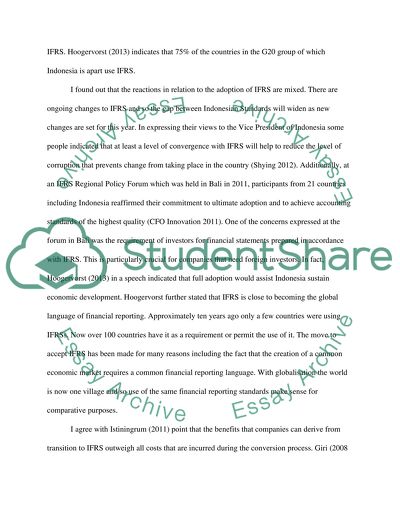Cite this document
(“IFRS Essay Example | Topics and Well Written Essays - 1000 words”, n.d.)
Retrieved from https://studentshare.org/finance-accounting/1477009-ifrs
Retrieved from https://studentshare.org/finance-accounting/1477009-ifrs
(IFRS Essay Example | Topics and Well Written Essays - 1000 Words)
https://studentshare.org/finance-accounting/1477009-ifrs.
https://studentshare.org/finance-accounting/1477009-ifrs.
“IFRS Essay Example | Topics and Well Written Essays - 1000 Words”, n.d. https://studentshare.org/finance-accounting/1477009-ifrs.


